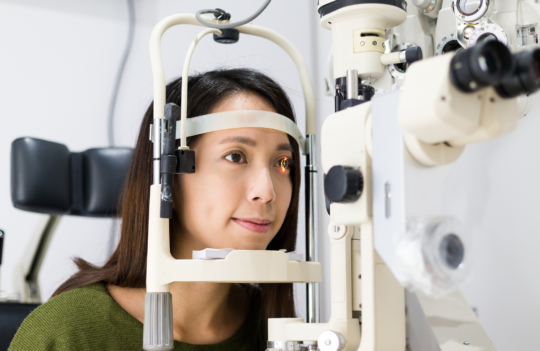SHARES

Adding fish in your diet is a great way to keep your eyes healthy. Having an adequate amount of fish intake can reduce your risk of developing eye diseases, especially dry eyes.
Tears protect the eyes from being dry and irritable. Our tear film has three layers: The outer is an oil or lipid-based layer, the middle layer is water whilst the inner layer contains mucin. When the tear coating is compromised due to age, hormonal changes, and environmental factors, it lead to dry eyes.
Some people find relief for dry eyes by using artificial tears and ointments while some find increasing the intake of omega 3 fatty acids effective to prevent and manage dry eyes. These fatty acids are found naturally in fishes like salmon, sardines, mackerels and herring tuna. Alternatively, you may take omega 3 supplements to boost your dietary intake.

A study conducted by the International Journal of Ophthalmology has shown that those who consumed the omega 3 fatty acids from fish had 17% lower risk of dry eyes as compared with those who consumed little or no seafood. The study concluded that omega 3 fatty acids “have a definite role for dry eye syndrome.”
Omega 3 fatty acids help to improve the function of the meibomian glands in the eyes, which is responsible for producing the lipid (‘fatty”) portion of the tears, which reduces dry eye symptoms. Aside from dry eyes, these fatty acids also reduce the growth of abnormal blood vessels that occur in age-related macular degeneration (ARMD) and diabetic retinopathy.
Other than fatty acids, a healthy diet is essential for eye health. Maintaining a diet high in antioxidants will prevent the development of serious eye conditions and ensure your eyes work their best. Always incorporate a variety of whole, unprocessed foods.

Other practical steps to keep your eyes healthy are:
- Visit an eye health professional (e.g. optometrist) for eye checks every 1 -2 years
- Wear sunglasses outdoors to protect against harmful UV rays
- Rest your eyes when spending prolonged hours on digital devices
- Quit smoking
- Maintain healthy blood sugar levels
Disclaimer
Important: The team at GetDocSays have made extensive and reasonable efforts to ensure that medical information is accurate. They further ensure that the content conforms to the standards of the publication. However, they reflect the opinions and views of the contributors and not the publisher.
The information on this site is not professional advice nor to replace personal consultation with a health care professional. The reader should not disregard medical advice or delay seeking it because of information published here.
by Joanne Lee
Multipotentialite. Loves creating and seeing ideas come alive. View all articles by Joanne Lee.





